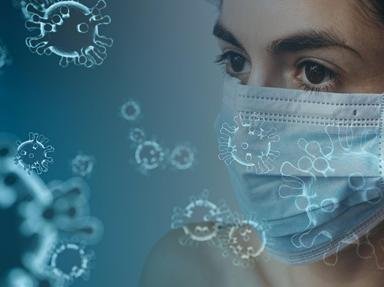Quiz Answer Key and Fun Facts
1. It's possible to get allergies later in life, even into your 60s or 70s. Roughly 18 million Americans have hay fever, also known as what?
2. In addition to allergens, there are nonallergenic triggers than can cause the onset of allergies in older folks. Which of the following would be nonallergenic triggers?
3. What sort of treatment, recommended for reducing inflammation, can make diabetes, psychiatric problems, and hypertension worsen?
4. If one only has minor symptoms of allergies, doctors would recommend what sort of medication to reduce congestion, sneezing and runny nose symptoms?
5. If symptoms are more than just mild, a doctor might prescribe a steroid nasal spray to reduce the inflammation in the nasal passages. Some ear, nose, and throat physicians recommend forms of "nasal irrigation" involving using a saline solution (there are several different but similar "recipes") and pouring the solution into your nose. What is perhaps the most popular version of this device called?
6. According to the Asthma and Allergy Foundation of America's 2021 study, which of the following cities was ranked the least bothersome, the friendliest to allergy sufferers? (the other three cities were among the worst five).
7. And which of these cities was ranked the worst, or least friendly toward allergy sufferers according to the Asthma and Allergy Foundation of America 2021 study? (the other three cities were among the top 10 best).
8. In a study of 10,000 adults aged 45-years-old or over, allergy attacks were shown to trigger an inflammatory response that caused an 87% higher risk of what danger compared to people without hay fever?
9. Which of the following is the medication used in a rescue inhaler?
10. All but one of the following are recommendations by the St. Charles senior care facility to guard against the elderly getting an allergic reaction. Which of the following is the exact opposite of what should be done?
Source: Author
Billkozy
This quiz was reviewed by FunTrivia editor
rossian before going online.
Any errors found in FunTrivia content are routinely corrected through our feedback system.
